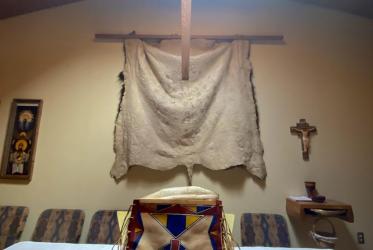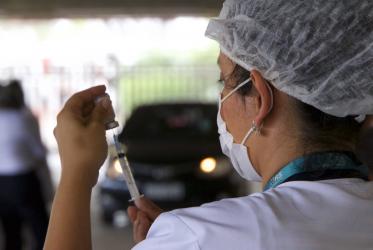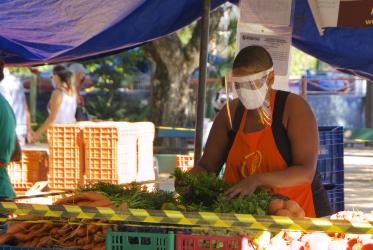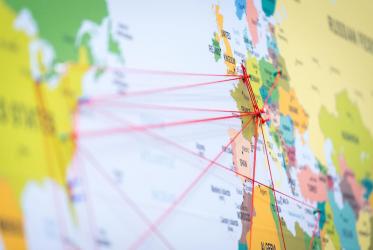Displaying 41 - 60 of 248
How racism and colonialism are exacerbating impacts of climate change
29 September 2021
“Gathering in Grief” mourns Rev. Phumzile Mabizela
07 July 2021
Rethinking Ecological Relationships in the Anthropocene era
11 - 13 February 2021
Brazilian churches call for transformative racial justice
23 November 2020
WCC executive committee maps future with hope in uncertain times
19 November 2020
Healing Together
A Facilitator’s Resource for Ecumenical Faith and Community-Based Counselling
15 October 2020













